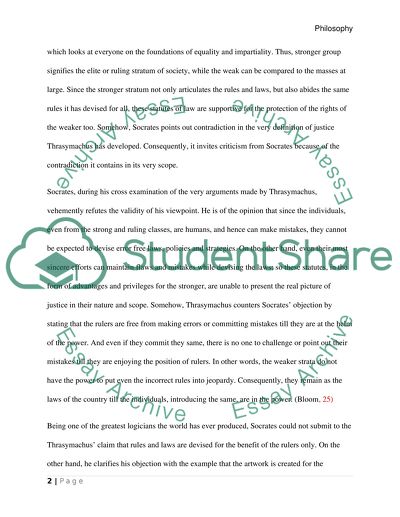Cite this document
(“Thrasymachus and Justice in Plato's Political Philosophy Research Paper”, n.d.)
Thrasymachus and Justice in Plato's Political Philosophy Research Paper. Retrieved from https://studentshare.org/philosophy/1446547-thrasymachus-and-justice-in-platos-political-philosophy
Thrasymachus and Justice in Plato's Political Philosophy Research Paper. Retrieved from https://studentshare.org/philosophy/1446547-thrasymachus-and-justice-in-platos-political-philosophy
(Thrasymachus and Justice in Plato'S Political Philosophy Research Paper)
Thrasymachus and Justice in Plato'S Political Philosophy Research Paper. https://studentshare.org/philosophy/1446547-thrasymachus-and-justice-in-platos-political-philosophy.
Thrasymachus and Justice in Plato'S Political Philosophy Research Paper. https://studentshare.org/philosophy/1446547-thrasymachus-and-justice-in-platos-political-philosophy.
“Thrasymachus and Justice in Plato'S Political Philosophy Research Paper”, n.d. https://studentshare.org/philosophy/1446547-thrasymachus-and-justice-in-platos-political-philosophy.


